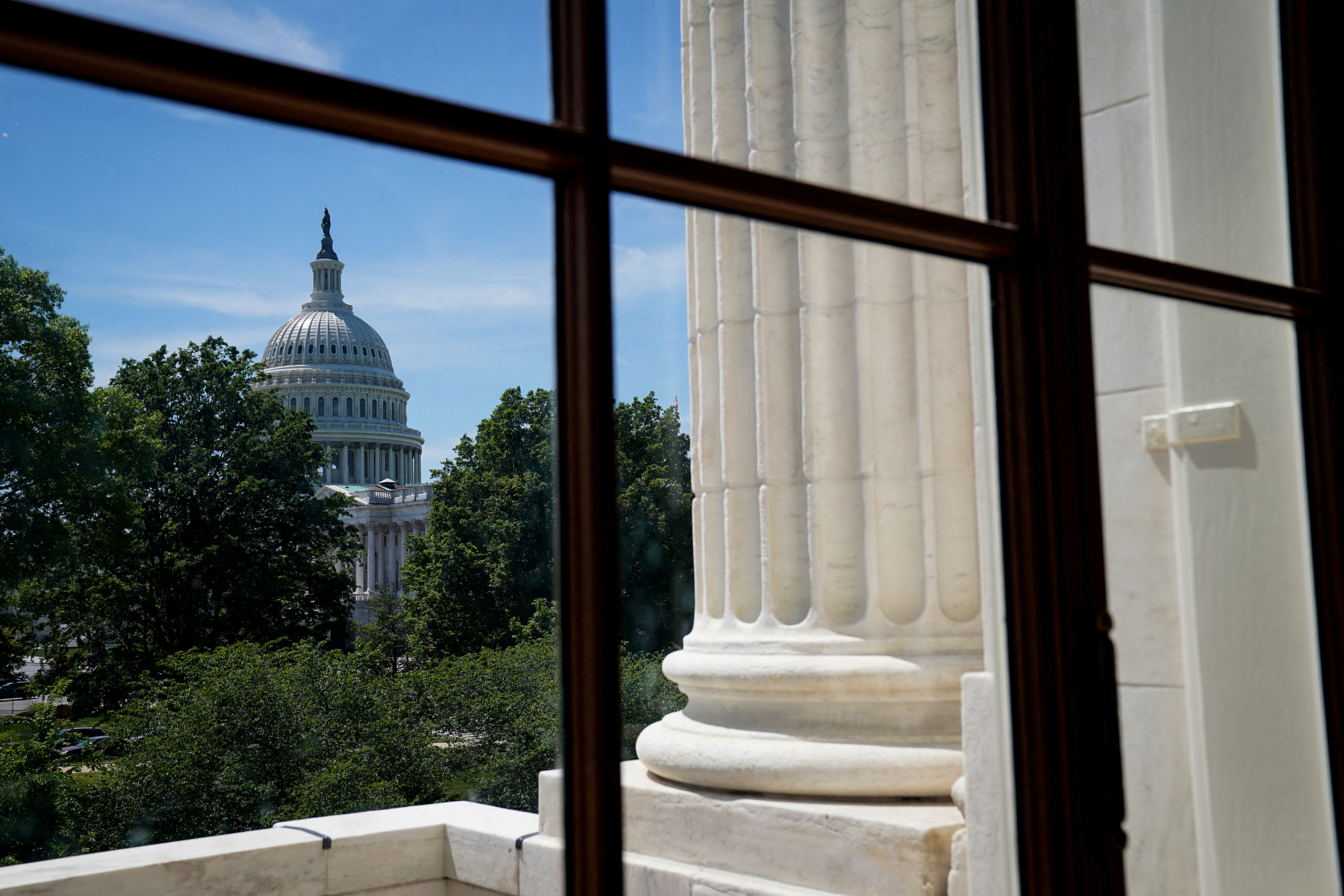
The U.S. Capitol dome is seen from the Russell Senate Office Building on Capitol Hill in Washington, U.S., April 19, 2023. REUTERS/Sarah Silbiger/File Photo Acquire Licensing Rights
Oct 26 (Reuters) – A group of Republican-led U.S. states on Thursday said they would appeal a Texas-based federal judge’s decision rejecting their challenge to a rule from President Joe Biden’s administration allowing employee retirement plans to consider environmental, social and governance (ESG) issues in investment decisions.
The 26 states, led by Texas and Utah, filed a notice of appeal in federal court in Amarillo. U.S. District Judge Matthew Kacsmaryk threw out their lawsuit on Sept. 21. Oil drilling company Liberty Energy Inc (LBRT.N) and an oil and gas trade group are also plaintiffs in the case and joined in the appeal.
The appeal goes to the New Orleans-based 5th U.S. Circuit Court of Appeals, which is considered one of the most conservative federal appeals courts and has 12 judges appointed by Republican presidents out of a total of 16.
A notice of appeal does not include any legal arguments or outline the basis for an appeal.
The rule was adopted last year by the U.S. Labor Department, reversing a 2020 rule devised by Republican former President Donald Trump’s administration restricting ESG investing by retirement plans. It covers plans that collectively invest $12 trillion on behalf of more than 150 million people.
Congress in March passed a Republican-backed resolution to repeal the rule but Biden, a Democrat, vetoed it.
ESG involves factors that investors may take into account such as a company’s climate- and environment-related policies, diversity practices and corporate governance issues such as executive compensation. Some Republicans have derided ESG as “woke” capitalism that puts a premium on liberal goals over investor returns.
The Employee Retirement Income Security Act of 1974, called ERISA, requires retirement plan administrators to act solely in the interest of participants in the plan. The states in their lawsuit claim the rule violates ERISA by allowing these plans to consider non-financial factors. The states have said the rule endangers the retirement savings of millions of Americans and will deplete state tax revenue.
Kacsmaryk in his decision upholding the rule said it still requires financial factors to come first and does not require or even encourage retirement plans to consider other factors such as climate change and social and labor issues.
Reporting by Daniel Wiessner in Albany, New York, Editing by Will Dunham and Alexia Garamfalvi
Our Standards: The Thomson Reuters Trust Principles.






